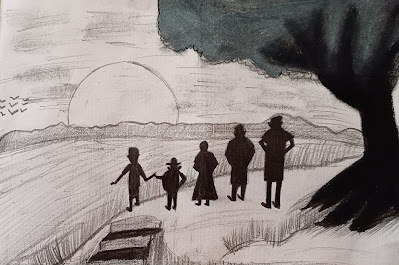Understanding your Teenager
Who are Adolescents or Teenagers ?
Adolescence is a transitional phase of transformation from childhood to adulthood. Parents may worry on 'Can a 10 year old hit puberty?' or 'What is the age group for adolescence?' The age group included within teenage or adolescence as per WHO is from 10 to 19 years of age. This indicates that the teen can start experiencing onset of puberty from an age as early as 10 years. In teenage, teenagers experience changes in body, mind as well as an inrush of emotions. Some of the common behavioral tendencies of teenagers are- mild to severe anxiety about studies and future
- conflicting depressive thoughts about appearance, colour etc.
- feeling of attraction towards other individuals
- decisive confusion
- more reliance on peer group
- grappling with their own identities
- becoming more self and beauty-conscious
- disturbed by conflicting thoughts
- back answering to elders
- extra need for privacy and independence
- doubts about sexual developments and gender identity
- risk taking behavior and curiosity
- experience of strong and intense emotions
- mood swings
Growth and Change in Body during Puberty
Adolescence is a transitional phase of transformation from childhood to adulthood. Parents may worry on 'Can a 10 year old hit puberty?' or 'What is the age group for adolescence?' The age group included within teenage or adolescence as per WHO is from 10 to 19 years of age. This indicates that the teen can start experiencing onset of puberty from an age as early as 10 years. In teenage, teenagers experience changes in body, mind as well as an inrush of emotions. Some of the common behavioral tendencies of teenagers are
Teenagers are usually in search of their own identity. The changes in appearance occurring in their body, curiosity upon sexual growth and other infatuations confuse them more. Over-influence of peer group and absence of reliable information along with blind beliefs on conflicting hearsay ideas can create troubles for a teenager including addiction to drugs, alcohol or smoking.
Educating them on their particular stage of growth and giving appropriate and reliable information about puberty is a must and a need of the hour for the safe and secure development of a teenager. Parents and teachers play a significant role in understanding and providing a conducive environment for them which can help in a healthy development and growth of an adolescent.
Adolescence marks physical, sexual, psychological and emotional growth or change among teenagers. Puberty indicates the onset of sexual development, capability of reproduction as well as encapsulates a sufficient amount of mood swings due to hormonal variations. Many a times, parents get confused by the sudden change in the behavior of their teenagers and wonder upon why my teenager is so angry. The teen is unable to understand or control his/her own emotional intensity or changes that they end up being confused or feeling rejected.
For the sake of easy understanding, the bodily evident changes in teenage can be broadly divided into 3 sections.
Section 1:- Head to Neck
- Skin becomes oily resulting in pimples / acne in face due to hormonal variations. He or she starts becoming conscious about pimples.
- Hair growth is visible at face, cheeks, all over hands and legs, under arms, chest and pubic area. Boys tend to develop moustache and beard. Teens start worrying about facial appearance. Girls may try different methods of beautification and boys worry about the thickness of facial hair. More time may be spent in front of the mirror.
- Slight to deep variations in the voice of boys notable due to the enlargement of vocal box and vocal cords. Adam's Apple tends to appear in the throat area of boys.
Section 2:- Chest to Waist
- Development of breasts in girls as well as in some boys which is normal. Teens start comparing among themselves and start feeling changes occurring in body.
- Sweating intensity increases due to growth of sweat glands accompanied by pronounced body odour and darkening of under arm skin. Teens may start to explore numerous different ways to overcome this problem.
- Increase of height and weight. Bones and muscles develop. Widening of hips in girls. Broadening of chest in boys. Teens may feel offended about their own body weight and tend to approach unscientific dieting methods.
Section 3:- Hip to Toes
- Female Body - Menstruation begins as part of attaining sexual maturity and reproductive maturity. Onset of menstrual cycle. Development of ovary and eggs. This includes the functioning of a lot of hormones resulting in mood swings, menstrual pain, and low blood pressure in some girls. Attraction towards opposite sex.
- Male Body - Enlargement of penis and testicles as part of attaining sexual and reproductive maturity. Male hormones start playing role. Involuntary erections or ejaculations may occur in sleep which are normal signs of sexual maturity. Masturbation tendency. Boys tend to experience emotional changes and attraction to opposite sex.
- Skin darkening around genitals of boys and girls.
Hygiene plays the most important role in Section 3 and intake of plenty of water is suggested for counteracting the sweating and oily skin issues discussed in Section 1 and Section 2.
It is therefore evident that the bodily growth and development of a teenager and emotional fluctuations are part of their path towards adulthood. But this stage involves almost 10 years and the body is in tremendous need of energy from proper food and healthy diet. It is most important to have an intake of balanced diet with appropriate nutrients including vitamins, minerals, proteins and fats which are essential for bone and muscle development as well as emotional and psychological balancing of a teen.
Most of all, understanding and patient parents and teachers are the backbone of a successful and happy teenager. Parents should try to be the pillar of support and should always be available for the teen when he/she wants to share their problems with. Worries and other emotional ups and downs in a teenager is a phase of their development and a healthy, caring and logical parenting can help them pass through this stage with confidence, courage and happiness.
HAPPY TEENAGE !! :)










Comments